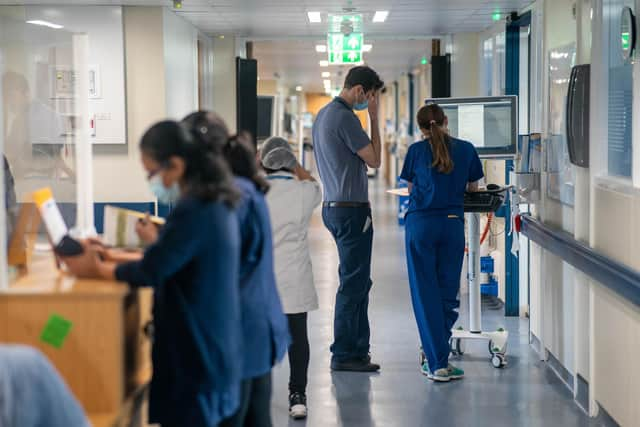One in 20 people in Bedford living with poor health
and live on Freeview channel 276
One in 20 people in Bedford say they are living with poor health, as a think-tank warns of the growth of ‘bad health blackspots’ across England and Wales.
A new analysis by the Institute for Public Policy Research (IPPR) found areas with higher sickness rates are associated with lower productivity, high poverty and more economic inactivity.
Advertisement
Advertisement
It proposes new health and prosperity improvement (HAPI) zones, that “would serve as an innovative response to growing poverty and ill-health”.


The figures show 4.7% of people in Bedford reported bad or very bad health as of the 2021 Census.
Meanwhile, 21.3% of all 117,090 adults in the workforce in the area were economically inactive during the same period.
This meant Bedford was ranked joint 118th for health and economic activity out of 330 local authorities, along with Milton Keynes.
Advertisement
Advertisement
The IPPR said its analysis shows people living in the most deprived areas are nearly one and a half times more likely to experience economic inactivity and are twice as likely to be in poor health than those in the least deprived authorities.
People living in these areas are also more likely to experience worse levels of productivity, material deprivation, child poverty, unemployment, and household income.
Professor Donna Hall CBE, IPPR commissioner, said: “People working within local government and health services are trapped by a lack of resources, support and agency to serve their local population. People feel unheard and their health is suffering.
“The new HAPI zones would serve as an innovative response to growing poverty and ill-health, put power into the hands of local leaders and ignite local ownership over the future of public health.”
Advertisement
Advertisement
Separate figures show the healthy life expectancy in Bedford was 62.3 years for males and 59.3 for females in 2018 to 2020. This was a 12.4-year gap with Rutland, the healthiest area for males, and 11.9 years with Wokingham, which was the healthiest for females.
Efua Poku-Amanfo, research fellow at the IPPR, said: “The case for government spending and action on health is clear. It’s not just the morally right thing to do, it’s the economically sensible thing to do.
“Bad health blackspots, especially in the North East and North West of England and the South of Wales, are stifling national economic growth and holding back the wealth and health of the nation.”
Alice Martin, head of research at the Work Foundation at Lancaster University, said there was a proven link between good health and secure work.
Advertisement
Advertisement
She said: “Job security plays an important role in health outcomes, insecure work can be linked to higher levels of depression, anxiety and self-reported ill-health.
“It is time to move away from pushing people into ‘any job’, and instead the Government needs to work with local leaders to improve job quality in their area - and ensure jobseekers are supported into secure and sustainable roles.”
A government spokesperson said: “We are committed to increasing healthy life expectancy by five years by 2035 and narrowing the gap between local areas by 2030 including by investing up to £14.1 billion to improve health services and help people live longer, healthier lives.
“Our Major Conditions Strategy will look at the prevention and management of conditions responsible for over 60% of ill health and our plans for a smoke-free generation will make a significant difference with people in more deprived areas almost twice as likely to die for smoking related conditions.
Advertisement
Advertisement
“Our Back to Work Plan will also help up to a further 1.1 million people to look for and stay in work that’s suited to their needs including through integrated mental health support such as NHS Talking Therapies.”